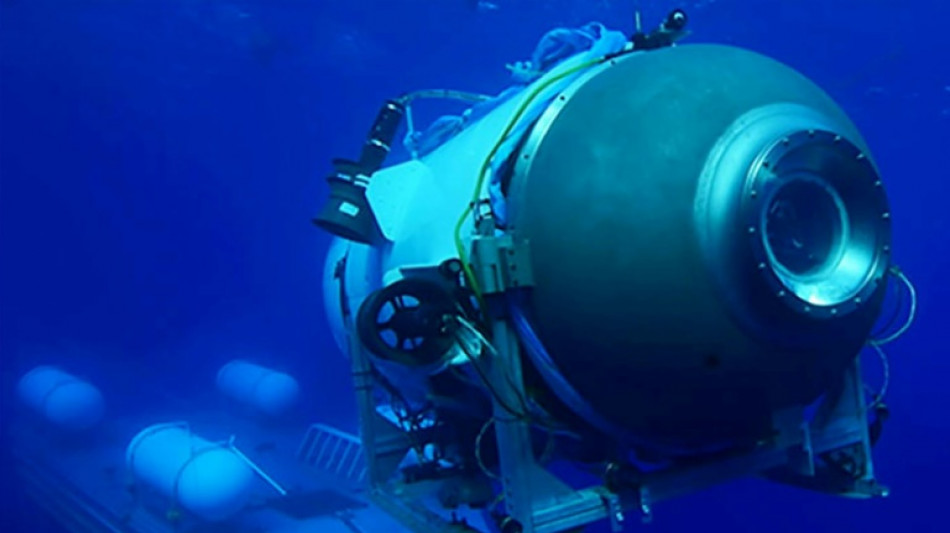
-
 Fleeing Myanmar, Rohingya refugees recall horror of war
Fleeing Myanmar, Rohingya refugees recall horror of war
-
Smith century puts Australia in control of 4th Test against India

-
 Israeli strikes hit Yemen as Netanyahu fires warning
Israeli strikes hit Yemen as Netanyahu fires warning
-
Peru ex-official denies running Congress prostitution ring

-
 Australia's Smith reaches 34th Test century
Australia's Smith reaches 34th Test century
-
NHL Red Wings fire Lalonde and name McLellan as head coach

-
 Injured Halep withdraws from Australian Open
Injured Halep withdraws from Australian Open
-
Liverpool power seven points clear, Man Utd crash at Wolves

-
 Leaders Liverpool survive Leicester scare to go seven points clear
Leaders Liverpool survive Leicester scare to go seven points clear
-
Membership of UK's anti-immigration Reform party surpasses Conservatives

-
 Two dead in treacherous Sydney-Hobart yacht race
Two dead in treacherous Sydney-Hobart yacht race
-
Amorim warns of 'long journey' ahead for miserable Man Utd

-
 Three dead, four injured in Norway bus accident
Three dead, four injured in Norway bus accident
-
Man Utd fall to Wolves as Fernandes sees red

-
 Fernandes sent off as Man Utd crash at Wolves, troubled Man City held by Everton
Fernandes sent off as Man Utd crash at Wolves, troubled Man City held by Everton
-
'Logical' that fatigued Spurs are faltering - Postecoglou

-
 Manmohan Singh: technocrat who became India's accidental PM
Manmohan Singh: technocrat who became India's accidental PM
-
India's former PM Manmohan Singh dies aged 92

-
 Acid risk contained in deadly Brazil bridge collapse
Acid risk contained in deadly Brazil bridge collapse
-
Chelsea stunned by Fulham in blow to Premier League title hopes

-
 Troubled Man City held by lowly Everton, Chelsea title bid rocked
Troubled Man City held by lowly Everton, Chelsea title bid rocked
-
Paterson, Bosch give South Africa edge over Pakistan in first Test

-
 Oil leak in Peru tourist zone triggers 'environmental emergency'
Oil leak in Peru tourist zone triggers 'environmental emergency'
-
Mozambique post-election violence kills 125 in three days: NGO

-
 Finns probing ship from Russia for 'sabotage' of cables
Finns probing ship from Russia for 'sabotage' of cables
-
Williams hits unbeaten 145 as Zimbabwe make Afghanistan toil

-
 Bowlers bring Pakistan back into first Test in South Africa
Bowlers bring Pakistan back into first Test in South Africa
-
Banbridge foils French to land King George VI Chase for Ireland

-
 Man City pay penalty for Haaland miss in Everton draw
Man City pay penalty for Haaland miss in Everton draw
-
Paterson takes five wickets as Pakistan bowled out for 211

-
 Kremlin cautions on 'hypotheses' over plane crash
Kremlin cautions on 'hypotheses' over plane crash
-
Pakistan military convicts 60 more civilians of pro-Khan unrest

-
 Turkey lowers interest rate to 47.5 percent
Turkey lowers interest rate to 47.5 percent
-
Syria authorities launch operation in Assad stronghold

-
 Record number of migrants lost at sea bound for Spain in 2024: NGO
Record number of migrants lost at sea bound for Spain in 2024: NGO
-
Kohli called out over shoulder bump with Konstas during fourth Test

-
 Rural communities urged to flee east Australia bushfire
Rural communities urged to flee east Australia bushfire
-
Sri Lanka train memorial honours tsunami tragedy

-
 S. Korea's opposition moves to impeach acting president
S. Korea's opposition moves to impeach acting president
-
'We couldn't find their bodies': Indonesian tsunami survivors mourn the dead

-
 Lakers pip Warriors after another LeBron-Curry classic
Lakers pip Warriors after another LeBron-Curry classic
-
India readies for 400 million pilgrims at mammoth festival

-
 Nepal hosts hot air balloon festival
Nepal hosts hot air balloon festival
-
Asia stocks up as 'Santa Rally' persists

-
 Tears, prayers as Asia mourns tsunami dead 20 years on
Tears, prayers as Asia mourns tsunami dead 20 years on
-
Sydney-Hobart yacht crews set off on gale-threatened race

-
 Key public service makes quiet return in Gaza
Key public service makes quiet return in Gaza
-
Fearless Konstas slams 60 as Australia take upper hand against India

-
 Hungry Sabalenka ready for more Slam success
Hungry Sabalenka ready for more Slam success
-
Mass jailbreak in Mozambique amid post-election unrest


Stockton Rush, Titanic sub's deep-sea 'daredevil'
Deep-sea thrill-seeker Stockton Rush founded OceanGate in 2009 with the hopes of advancing submersible vehicle technology and taking travelers into the darkest depths of the ocean.
Described by Smithsonian Magazine as a "daredevil inventor," Rush pushed the envelope of underwater exploration and complained about strict rules he said were holding the industry back.
"It's obscenely safe because they have all these regulations. But it also hasn't innovated or grown -- because they have all these regulations," Rush told the magazine in 2019.
In an attempt to raise his company's profile, Rush began in 2021 to take paying customers to the iconic wreck of the Titanic on his specially built vessel.
During such a mission on June 18, 2023, the submersible -- with Rush onboard -- went missing, losing contact with the surface ship less than two hours after it began its descent.
An international search effort was launched to try and find Rush and the four other passengers in the remote North Atlantic, but no sign of them has been found.
The trips cost $250,000 with hardly a guarantee that the 110-year-old wreck will be reached, given all the potential obstacles, like bad weather, while customers must also sign a waiver recognizing the possible risk of death.
In a segment for CBS News, Rush extolled the excursions and pushed back against claims his equipment seemed slapped together -- though he admitted his sub was steered with a modified video game controller.
But he insisted that the fundamental design was sound and not slipshod.
"The pressure vessel is not 'MacGyver' at all, because that's where we worked with Boeing and NASA and the University of Washington," he told CBS.
"Everything else can fail. Your thrusters can go, your lights can go, you're still going to be safe," he said.
The Titanic trips followed a long period of delay during which Rush failed to get the proper permits for the project's support vessel.
- Marketing ploy -
He admitted that visiting the legendary shipwreck was part of a marketing strategy as he attempted to grow his business and develop new innovations for submersible vessels.
"If you ask people to name something underwater, it's going to be sharks, whales, Titanic," he told Smithsonian.
According to his company website, Rush began his career not underwater, but as a pilot, qualifying for the United Airlines Jet Training Institute in 1981 at the age of 19.
During college at Princeton University, he spent summers serving as a DC-8 first officer on flights to Europe and the Middle East.
He then got an MBA at UC Berkeley after which he dabbled in experimental aircraft and submarines.
But over the last two decades, Rush threw himself into several ocean-related tech ventures including serving on the board of Seattle's BlueView Technologies, which makes small, high-frequency sonar systems.
Rush has downplayed the risk of going to the depths of the ocean, saying that he was more concerned by the unexpected.
"What I worry about most are things that will stop me from being able to get to the surface. Overhangs, fish nets, entanglement hazards," he told the Unsung Science podcast.
He also said that he worried about a passenger on the journey out to the Titanic, when they could slip on the icy deck or have a door slam and crush a hand.
"That's to me the dangerous part. But, the scary part for most people is going down to 6,000 PSI (pressure)," he said.
T.Batista--PC



